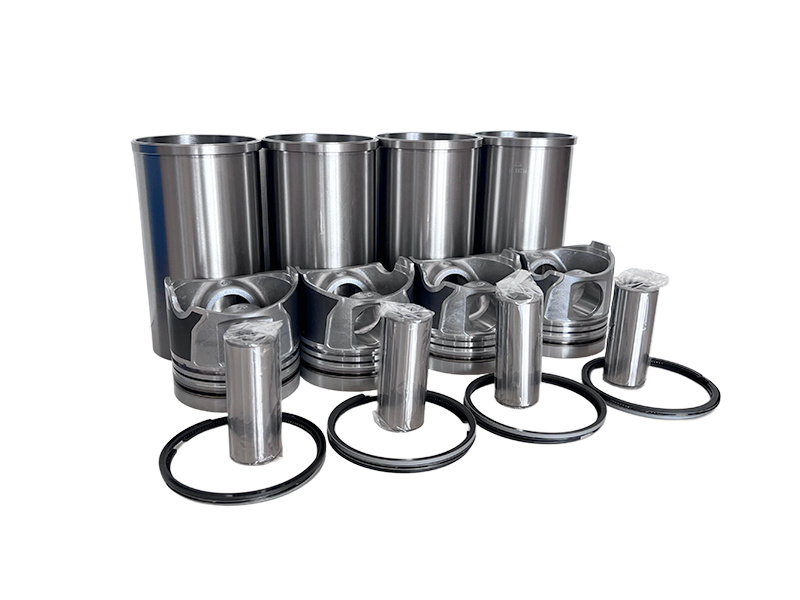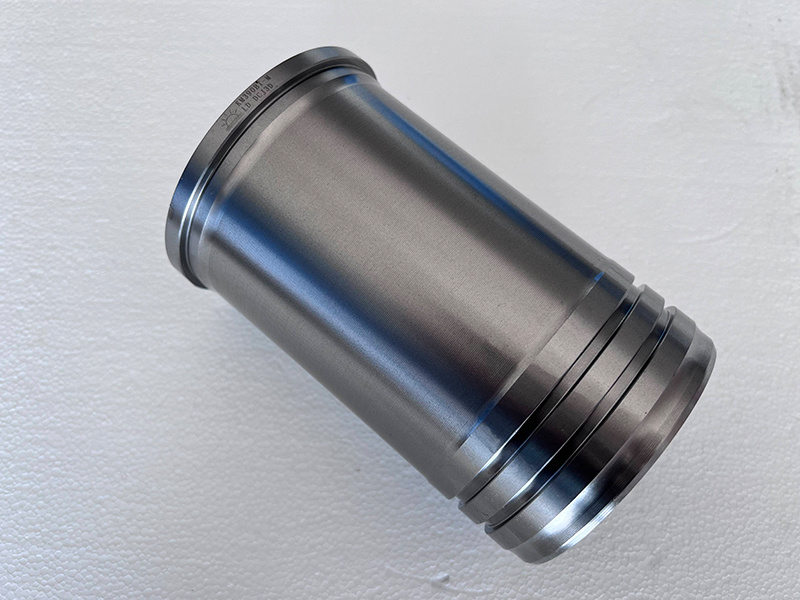Essential Fasteners for Durable Agricultural Equipment: A Comprehensive Guide
Sep 28,2025
Essential Fasteners for Durable Agricultural Equipment: A Comprehensive Guide
Table of Contents
Introduction to Agricultural Equipment Fasteners
The Importance of Fasteners in Agricultural Machinery
Types of Fasteners Used in Agriculture
Bolts: The Foundation of Equipment Assembly
Nuts: The Unsung Heroes of Fastening
Screws: Versatile Faste

Essential Fasteners for Durable Agricultural Equipment: A Comprehensive Guide
Table of Contents
- Introduction to Agricultural Equipment Fasteners
- The Importance of Fasteners in Agricultural Machinery
- Types of Fasteners Used in Agriculture
- Bolts: The Foundation of Equipment Assembly
- Nuts: The Unsung Heroes of Fastening
- Screws: Versatile Fastening Solutions
- Washers: The Protectors
- Rivets: Permanent Solutions for Robust Builds
- Materials Used in Fasteners: Choosing the Right Type
- Applications of Fasteners in Agricultural Equipment
- Maintaining Fasteners for Longevity
- Common Challenges with Agricultural Fasteners
- Frequently Asked Questions
- Conclusion
Introduction to Agricultural Equipment Fasteners
Agricultural equipment forms the backbone of modern farming, playing a crucial role in ensuring productivity and efficiency. However, the effectiveness of this machinery relies heavily on the quality of its components, particularly fasteners. Fasteners are small yet significant components that hold various parts of agricultural machines together, from tractors to harvesters. Understanding the different types of fasteners and their applications can aid farmers and agricultural engineers in enhancing the durability and performance of their equipment.
The Importance of Fasteners in Agricultural Machinery
Fasteners serve multiple purposes in agricultural machinery, including:
1. **Structural Integrity**: Fasteners are essential for maintaining the structural integrity of equipment. They secure components, preventing loosening or detachment during operation.
2. **Safety**: A properly secured machine reduces the risk of accidents. Fasteners ensure that critical parts do not fail while in use.
3. **Maintenance**: High-quality fasteners facilitate easier maintenance and repairs. If fasteners are of poor quality or improperly installed, they can lead to increased downtime and repair costs.
Understanding the importance of fasteners is crucial for anyone involved with agricultural equipment. Using the right types of fasteners can lead to enhanced performance and reduced operational costs.
Types of Fasteners Used in Agriculture
Agricultural machinery employs various types of fasteners tailored to specific applications. Each type has unique characteristics that make it suitable for different functions. Below, we explore some of the most commonly used fasteners in agriculture.
Bolts: The Foundation of Equipment Assembly
Bolts are one of the most commonly used fasteners in agricultural machinery. They consist of a head, a shaft, and a thread, which allows them to be screwed into corresponding nuts or tapped holes. Bolts are designed to withstand significant loads and are available in various lengths and diameters.
In agriculture, bolts are frequently used to attach components like engines, axles, and frames. When selecting bolts for agricultural equipment, it is critical to consider factors such as load capacity, material, and corrosion resistance.
Nuts: The Unsung Heroes of Fastening
Nuts complement bolts by providing a securing mechanism that prevents loosening due to vibration. They come in several designs, including hex, square, and lock nuts. Lock nuts, in particular, are vital in agricultural applications because they resist loosening, enhancing safety and reliability.
Selecting the right nut type for your bolts is crucial to ensure secure fastening in your agricultural machinery. Additionally, using properly sized nuts can prevent damage to the bolt threads, prolonging the lifespan of the fastener.
Screws: Versatile Fastening Solutions
Screws are another vital type of fastener used in various agricultural applications. Unlike bolts, screws can be directly driven into materials without requiring a nut. They come with different head styles, thread types, and lengths, providing versatility in fastening.
In agriculture, screws are often used for attaching panels, securing covers, or fastening smaller components. The choice of screw type will depend on the material being fastened and the required strength of the joint.
Washers: The Protectors
Washers are essential components that are often overlooked. They are used in conjunction with bolts and nuts to distribute the load, protect surfaces, and reduce wear. Two common types of washers are flat washers and lock washers.
In agricultural equipment, washers prevent damage to surfaces and enhance the stability of the fastening system. Using washers appropriately can extend the life of both the fastener and the components it secures.
Rivets: Permanent Solutions for Robust Builds
Rivets are permanent fasteners that are used in applications where a strong, unmovable joint is required. They are typically employed in situations where welding is impractical or undesirable. Riveting requires specialized tools and techniques but provides a highly durable fastening solution.
In agriculture, rivets can be found in equipment such as trailers and large machinery frames, where structural integrity is paramount. They offer strength and reliability, making them a staple in heavy-duty agricultural applications.
Materials Used in Fasteners: Choosing the Right Type
The materials from which fasteners are made significantly impact their performance and longevity. Common materials include:
1. **Steel**: The most commonly used material for fasteners due to its strength and durability. It can be further categorized into carbon steel and stainless steel, the latter being more resistant to corrosion.
2. **Aluminum**: Lightweight and resistant to corrosion, aluminum fasteners are suitable for applications where weight savings are crucial. However, they may not provide the same strength as steel.
3. **Plastic**: In certain situations, plastic fasteners can be used, especially in non-load bearing applications. They are lightweight and resistant to corrosion but have limited strength.
Selecting the appropriate material for fasteners is essential for ensuring that agricultural equipment operates effectively and lasts longer.
Applications of Fasteners in Agricultural Equipment
Fasteners are integral to a wide range of agricultural equipment. Here are some common applications:
- **Tractors**: Fasteners secure critical components such as engines, transmissions, and hydraulic systems.
- **Harvesters**: Fasteners hold together cutting mechanisms and other essential parts that operate under heavy loads.
- **Plows and Tillage Equipment**: Fasteners ensure that adjustable parts can be securely held in place during operation.
- **Irrigation Systems**: Fasteners play a crucial role in assembling pipework and fittings necessary for effective irrigation.
Understanding the specific applications of fasteners in agricultural equipment can guide selection and maintenance practices.
Maintaining Fasteners for Longevity
Proper maintenance of fasteners is crucial for the longevity of agricultural equipment. Here are a few best practices:
1. **Regular Inspections**: Regularly inspect fasteners for signs of corrosion, wear, or loosening. This proactive approach can prevent unexpected failures during operation.
2. **Correct Torque Settings**: Always adhere to the manufacturer's recommended torque settings when tightening fasteners. Over-tightening can lead to stripping threads or breaking the fastener.
3. **Use of Anti-Seize Compounds**: Applying anti-seize compounds can help prevent corrosion and make future removal easier.
4. **Replacement of Worn Fasteners**: Promptly replace any fasteners that show signs of excessive wear or damage to maintain equipment integrity.
Implementing these maintenance strategies will help ensure that fasteners perform optimally, contributing to the overall durability of agricultural equipment.
Common Challenges with Agricultural Fasteners
While fasteners are essential for the performance of agricultural machinery, they often face several challenges:
- **Corrosion**: Exposure to moisture, fertilizers, and chemicals can lead to rust and corrosion, weakening fasteners over time.
- **Vibration**: Continuous operation of machinery can cause fasteners to loosen, leading to potential failures.
- **Wear and Tear**: Constant movement and heavy loads can lead to wear on fasteners, necessitating frequent inspections and replacements.
Understanding these challenges can guide farmers and equipment operators in implementing strategies to mitigate risks and enhance equipment reliability.
Frequently Asked Questions
1. What types of fasteners are best for outdoor agricultural equipment?
Fasteners made from stainless steel or galvanized steel are ideal for outdoor agricultural equipment as they offer superior corrosion resistance.
2. How often should I inspect fasteners on my agricultural machinery?
It is recommended to inspect fasteners at least once per season or before significant operational periods to ensure they are secure and free from damage.
3. Can I use regular bolts and nuts in agricultural applications?
While regular bolts and nuts may suffice for light-duty applications, it is best to use heavy-duty, corrosion-resistant fasteners specifically designed for agricultural use.
4. What should I do if a fastener is stripped or damaged?
If a fastener is stripped or damaged, it should be replaced immediately to avoid compromising the integrity of the equipment.
5. Are lock washers necessary for agricultural fasteners?
Yes, lock washers are recommended as they help to prevent fasteners from loosening due to vibrations during operation.
Conclusion
Fasteners play a critical role in ensuring the durability and performance of agricultural equipment. By understanding the various types of fasteners, their materials, applications, and maintenance best practices, farmers and agricultural engineers can make informed decisions that enhance equipment longevity and safety. Investing time and resources in selecting the right fasteners and maintaining them effectively will lead to greater efficiency and productivity in agricultural operations. Prioritizing quality fasteners ensures that agricultural machinery can withstand the rigors of farming, ultimately supporting sustainable agricultural practices.
TAG:
Recent News
Mastering Agricultural Machinery: A Deep Dive into Engine Speed Control Shaft Mechanics
Mastering Agricultural Machinery: Understanding Engine Speed Control Shaft
Table of Contents
1. Introduction to Engine Speed Control Shaft in Agricultural Machinery
2. Importance of Engine Speed Control Shaft in Agricultural Machinery
3. How Engine Speed Control Shaft Works
4. Types of Engine Speed Control Shafts
4.1. Mechanical Control Shafts
4.2. Electronic Control Shafts
5. Common Issues with E


